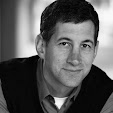This was an awesome (and pretty intense) 1-day show in San Francisco this past Friday, covering all of the current IT operations and energy efficiency topics. It was one of a number of local/international shows run by the same Brits who also publish ZeroDowntime. And, it was one of their largest - they claim it drew ~ 800 folks, almost all of whom were directly involved in operating end-user datacenters. I definitely recommend attending one in your area.
I had great conversations with some of the authorities, and attended a handful of sessions that included the US DOE, a panel on datacenter econometrics, an end-user panel regarding datacenter automation, and some vendor presentations regarding upcoming technologies.
US DOE
This was definitely the most newsworthy session (see my previous blog entry). The DOE has been piloting their DataCenter assessment tool, "DC-Pro" lately - and their primary assistant, Lawrence Berkeley National Laboratories (LBNL), gave a walk-through of the tool, plus a roadmap of the overall goals and roll-out plans from now through 2011. I've now spoken with Bill Tschudi of LBNL a number of times; he's optimistic that the DOE will hit its goals for the tool, and for thousands of data center operators to make use of it in the next year or so.
IT Econometrics panel
Early in the morning there was also a decent panel covering topics of "green data center econometrics", essentially diving into a number of cost topics frequently overlooked in analyses. On the panel was Jon Haas of Intel, Mark Honeck of Quimonda (big DRAM manufacturer), and Winston Bumpus representing the Green Grid. Everyone agreed to "measure first", the same mantra that came out of the Uptime Institute earlier this year... in other words, measure power, temperatures, airflows and economics first, so to establish a baseline and a quantifiable goal for improvement. The other conclusion i'm happy they reached was to pursue projects that can get done quickly and show real benefits - pursue tactical initatives first.
Lastly (and by virtue of who was on the panel) came an interesting conclusion having to do with server-based power consumption: Memory is a *huge* power hog, made even worse by the move toward virtualization which typically requires a large memory upgrade for consolidating servers. One finding was that not all memory is created equal, and not all configurations consume equal power (16 1Gb SIMMs can consume four times as much power as 2 8Gb SIMMs)
On Datacenter Automation
This was a fantastic session given jointly by Cisco and OSIsoft. Cisco's primary speaker was in charge of their global lab compute capacity, and is trying to consolidate something like 200 separate labs around the globe. He clearly understood the organization differences between Facilities & IT operations, and the need to fill the gap - otherwise no useful efficiencies could be realized. Further, he predicted (if not asked to require) that IT automation systems (that govern compute, power and cooling resources) ultimately be integrated with building automation systems. In fact, he went a step further and posited that he'd like to see automation systems that interact globally. That means, he'd like to be able to dynamically push (compute) load to locations where capacity was economical -- a "follow-the-moon" strategy. This is counter to the traditional example whereby one pushes cooling to where the hot spots are; rather, push compute loads to where the cooling (and floorspace) is. This form of automation is right up my alley :) I'm happy to see other industry leaders as proponents.
I also had a chance to speak at length with Paul Marcoux, Cisco's VP of green engineering. (An interesting proposal from him here). He very much believes that the US will face carbon emissions capping/trading in the next few years... after it's incepted by the EC and others. Ergo, Cisco is taking the lead in comprehensive sustainability initiatives. And if you look at the number of sustainability organizations they're taking the lead in, you have to believe it.
Exhibitors
Aside from the sponsor/exhibitors, there were very few vendors at the show, and lots of time to interact & network with local peers -- something that's invaluable, and that I heard that time and again from attendees who've been in the past. What was also great what that most (but not all) of their pitches were truly education, with a minority being "commercials" for product.
Summary
This is a great show for data center managers to attend; it's only one day out of your schedule, and because it visits 7 US cities, minimal travel is usually involved. They've also got an international perspective because they visit 20 other cities around the globe.
Subscribe to:
Post Comments (Atom)




No comments:
Post a Comment